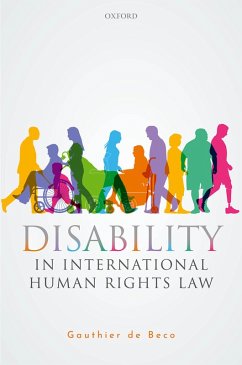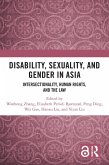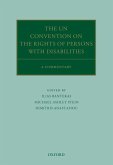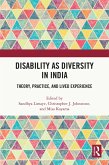This book examines what international human rights law has gained from the new elements in the UN Convention on the Rights of Persons with Disabilities (CRPD). It explores how the CRPD is intricately bound up with other international instruments by studying the relationship between the Convention rights and those protected by other human rights treaties, as well as the overall objectives of the UN. Using a social model lens on disability, the book shows how the Convention sheds new light on the very notion of human rights. The book provides a theoretical framework which explicitly integrates disability into international human rights law. It explains how the CRPD challenges the legal subject by drawing attention to distinct forms of embodiment, before introducing the idea of the 'dis-abled subject', which stems from a recognition that all individuals encounter disability-related issues during their lives. The book also shows how to apply this theoretical framework to several rights and highlights the consequences for the implementation of human rights treaties as a whole. It builds upon the literature of disability studies and legal and political theory, as well as drawing upon the recommendations of treaty bodies and reports of UN agencies and disabled people's organisations. This book thereby provides an agenda-setting analysis for all human rights experts, by showing the benefits of placing disabled people at the heart of international human rights law.
Dieser Download kann aus rechtlichen Gründen nur mit Rechnungsadresse in A, B, BG, CY, CZ, D, DK, EW, E, FIN, F, GR, HR, H, IRL, I, LT, L, LR, M, NL, PL, P, R, S, SLO, SK ausgeliefert werden.









